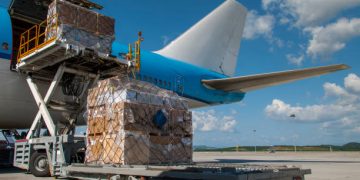Chennai: Domestic air passenger traffic in April slightly decreased to approximately 13.28 million from 13.37 million in March 2024, according to a report by ICRA. The report also indicated that the domestic aviation industry is expected to end FY25 with a net loss of Rs 30-40 billion. Despite the slight month-on-month decline, April 2024’s domestic air passenger traffic was 3.1 percent higher year-on-year and 21 percent above pre-Covid levels. For FY2024, domestic air passenger traffic reached around 154 million, showing a year-on-year growth of approximately 13 percent, aligning with ICRA’s estimates. This figure surpasses the pre-Covid levels of about 142 million recorded in FY2020.
Additionally, international passenger traffic for Indian carriers was approximately 29.68 million in FY2024, a year-on-year increase of about 24 percent and 30 percent higher than the pre-Covid levels of 22.73 million. The report noted that international passenger traffic for Indian carriers in FY2024 exceeded the previous peak of about 25.9 million in FY2019. The domestic aviation industry has experienced improved pricing power, resulting in higher yields compared to pre-Covid levels. This has positively impacted the revenue per available seat kilometer-cost per available seat kilometer (RASK-CASK) spread for airlines. ICRA expects the growth momentum in air passenger traffic seen in FY2024 to continue into FY2025, although further increases in yields may be limited.
Regarding airline earnings recovery, ICRA suggests it will be gradual due to high fixed costs. The industry reported a net loss of approximately Rs 170-175 billion in FY2023, primarily due to elevated aviation turbine fuel (ATF) prices and the depreciation of the Indian rupee against the US dollar. ICRA projects a similar net loss of around Rs 30-40 billion for FY2025, as airlines continue to experience healthy passenger traffic growth and maintain pricing discipline. However, the industry faces supply chain challenges and engine issues with Pratt and Whitney (P&W) engines, which have affected various airlines. In FY2024, Go Airlines (India) Limited grounded half of its fleet due to P&W engine problems, halting its operations. InterGlobe Aviation Limited (IndiGo) also grounded more than 70 aircraft due to P&W engine issues as of February 2, 2024, including issues related to powder metal contamination used in manufacturing certain engine parts.
ICRA estimates that 24-26 percent of the total fleet of Indian airlines was grounded by March 31, 2024. The global recall of engines by P&W and ongoing issues with their engines are likely to extend testing times to 250-300 days. This situation will increase operating expenses due to grounding costs, higher lease rentals from additional aircraft taken on lease to compensate for the grounded capacity, rising lease rates, and lower fuel efficiency from older aircraft taken on spot lease, impacting airlines’ cost structures. Nonetheless, healthy yields, high passenger load factors (PLF), and partial compensation from engine manufacturers are expected to mitigate the impact to some extent.
The industry has also faced challenges related to the availability of pilots and cabin crew, leading to flight cancellations and delays. In April 2024, Vistara had to cancel some scheduled flights and experienced delays due to a shortage of cabin crew and pilots. Similarly, on May 8, 2024, Air India Express canceled over 100 flights for similar reasons, affecting capacity availability and increasing customer grievances, according to ICRA.
Stay current with supply chain news on The Supply Chain Report. Free trade resources are available at ADAMftd.com.
#AviationIndustryNews #PassengerTraffic #Airlines #SupplyChainNews #ICRAReport












